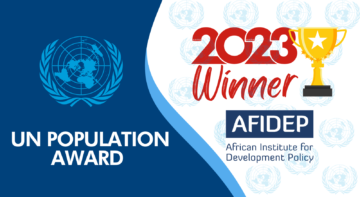News

The Government of Uganda shall be hosting the African Great Lakes Conference in Entebbe, Uganda from 3rd to 5th May 2017. The Conference which shall be officially opened by the President of Uganda H.E. Yoweri Kaguta Museveni on 3rd May 2017, brings together stakeholders in government, academia, civil society and the private sector to share the best available science and best practices for lake management across sectors and geographies.
Dr. Bernard Onyango, Knowledge Translation Scientist, AFIDEP, shall be making a presentation on Population Dynamics in the African Great Lakes at the session on Population Dynamics, Health and the Environment.
The African Great Lakes Region comprises countries that surround the African Great Lakes (Albert, Edward, Kivu, Tanganyika, Turkana, Malawi/Niassa/Nyasa, and Victoria) and these are Burundi, Democratic Republic of Congo, Kenya, Rwanda, Tanzania, and Rwanda. Each of the lakes is a source of water, food, and livelihoods to millions of people. These lakes are home to fish species found nowhere else in the world. The lakes also provide investment opportunities in aquaculture, agriculture, hydropower generation, fishing, transportation, urban and industrial development, recreation, mining, oil exploitation, and tourism.
However, these great resources are now facing threats due to unsustainable fishing, invasive species, habitat degradation, urban and industrial pollution, and sedimentation caused by deforestation and agriculture. These pressures are further exacerbated by increasing variability and change in the climate.
This Conference, therefore, seeks to find solutions to the prevailing challenges by increasing coordination among stakeholders, strengthening capacity, and informing policy with science, in order to accelerate conservation and strengthen sustainable development in the region.
You can follow the conversation on Twitter #AGLC2017.
Related Posts





